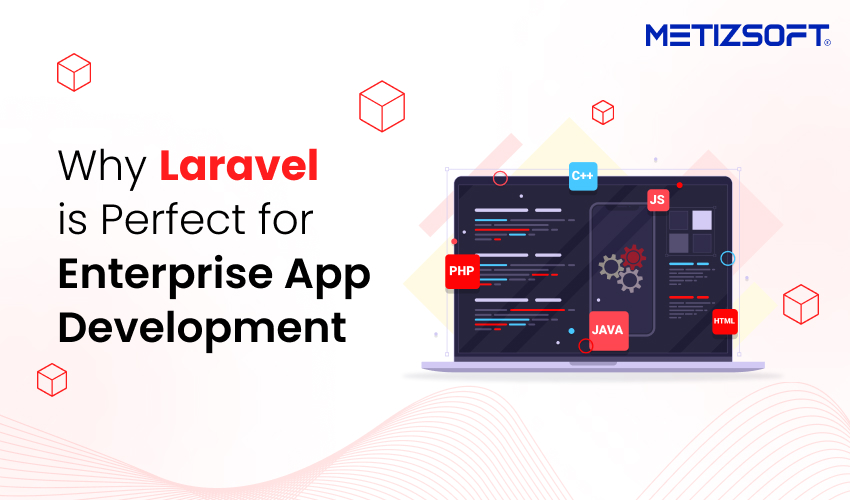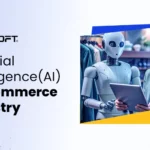
Laravel requires no formal introduction. Its dynamic feature set, robust security measures, elegant syntax, and widespread community support speak volumes about its broad spectrum adoption. Due to its staggering offerings, this open-source PHP framework has been the go-to option for agencies developing bespoke enterprise apps. Indeed, surveys show almost 35% of developers prefer Laravel over other PHP frameworks, primarily due to its quick adaptability and flexibility.
This blog post unveils excellent insights into this agile framework and explains why laravel development agencies and developers worldwide believe it is an ideal choice for enterprise app development.
Table of Contents
Laravel Usage and Market Size Statistics
According to a Marketing Scoop report, Laravel powers over 3.23 million websites, representing nearly 1.1% of the global internet.
With over 303,718 websites, including technology, entertainment, and education, Laravel has opted for the front row in the USA market in the most adopted enterprise app development segment.
The renowned PHP framework also enjoys a strong community presence on platforms like GitHub with 76.5k+ stars and 23.9k forks, ensuring its active engagement and a rich ecosystem.
Around 3,462 established companies worldwide use Laravel in their tech stacks. Some of the biggest companies adopting Laravel recently are Pfizer, Liberty Mutual Insurance, BBC, Invoice Ninja, Magneto, Unified InfoTech, CrowdCube, Alison, and MyRank.
Key Features of Laravel for Enterprise App Development
Laravel has an elegant set of features and capabilities, making it a front-line choice for enterprise application development. Here’s a breakdown of its key features:
Modular Architecture: Laravel’s modular architecture helps developers organize code into reusable and testable components. This consequently simplifies application maintenance and scalability. Furthermore, Laravel’s built-in dependency injection container manages class dependencies, promoting loose coupling and better testability of the codebase.
Expressive Syntax: Laravel’s expressive syntax is one of its standout features. It makes code well-readable and easier to understand, particularly in enterprise environments where multiple developers work on the same codebase.
This syntax follows the “Don’t Repeat Yourself” (DRY) and “Convention over Configuration” (CoC) paradigms. These reduce boilerplate code and promote consistency throughout the application.
Eloquent ORM (Object-Relational Mapping): Laravel’s Eloquent Object-Relational Mapping, aka ORM, brings an intuitive abstraction layer for database interaction. It allows laravel developers to write database queries using an expressive syntax, reducing the need to write raw SQL statements. The database migrations feature makes managing and versioning database schema changes easier. This simplifies collaborating and deploying applications across different environments.
Authentication and Authorization: Laravel has built-in user authentication and authorization features. Its ultra-modern authentication system provides a solid base for managing user logins, password resets, and related functions. Moreover, the authorization system allows developers to set detailed access controls and permissions. This consequently ensures that business applications meet strict security and compliance standards.
RESTful API Support: Laravel strongly supports developing RESTful APIs, which facilitates enterprise-level development and the integration of microservices, mobile apps, and third-party connections. Laravel’s routing system, middleware, and resource controllers simplify creating and managing APIs, consequently guaranteeing scalability and uniformity throughout the enterprise.
Top Reasons to Choose Laravel for Enterprise Development
Laravel’s features make it a compelling solution for building robust, scalable, and secure applications. But that’s not all this framework offers. More than this, it comprises many characteristics which make it a preferred choice for enterprise app development:
Structured Documentation: Laravel provides comprehensive manuals and tutorials for programmers of all levels, making learning and implementing its features easier.
Artisan Command-Line Interface: Hire Laravel developers to experience how they utilize Laravel’s command-line tool, Artisan. It will help manage repetitive tasks such as generating boilerplate code, handling databases, and running unit tests.
Ecosystem & Tools: Laravel has advanced tools like Forge for server management, Envoyer for deployment, and Nova for administrative interface development. These make the development process comprehensive and ideal for crafting enterprise applications.
Extensive Community: Laravel has a large user base, making it easier for developers to find help, resources, and packages online. This is especially beneficial for diagnostics and finding solutions.
High-end Scalability: Laravel is highly scalable and suitable for enterprise applications, especially those requiring high-volume multi-user and multi-transaction functionality. It also includes valuable features like job queues, event broadcasting, and caching mechanisms for developing scalable applications.
Enhanced Security: Laravel has robust security measures throughout the application process to address various threats, such as SQL injection, XSS, CSRF, etc. This is crucial for enterprise applications that handle sensitive information.
Testing: Laravel is built with testing in mind, supporting PHPUnit and including built-in unit and feature testing tools. This helps maintain application integrity and dependability.
Final Thoughts
With technology, users’ app preferences rapidly evolve in this transformative digital era. Hence, enterprises constantly seek more advanced, robust, efficient, and scalable solutions to meet their unified business needs. In contrast, they are adopting suitable programming languages, tools, and framework options like Laravel.
With its rich feature set, intuitive syntax, and strong community support, Laravel has become a go-to framework for building avant-garde enterprise applications. Experiencing such adoption amongst users, Laravel’s community has also worked tirelessly to make this PHP framework more convenient and compatible with complex development methods.
If you want to explore the richness of this dynamic framework and how it enhances the performance of enterprise applications, contact Metizsoft – your one-stop Laravel development agency today!
AboutChetan Sheladiya
Related Posts
This Is Why You Should Hire Dedicated Development Team For Your Next Project
Just think about how much easier and quicker things would be if a group of individuals was organized into a single unit...
Essential Tips and Tricks for UX/UI Design
Imagine visiting any random website for the first time as a user, and it’ll impress you within 5-10 seconds. How? UX/UI of...

